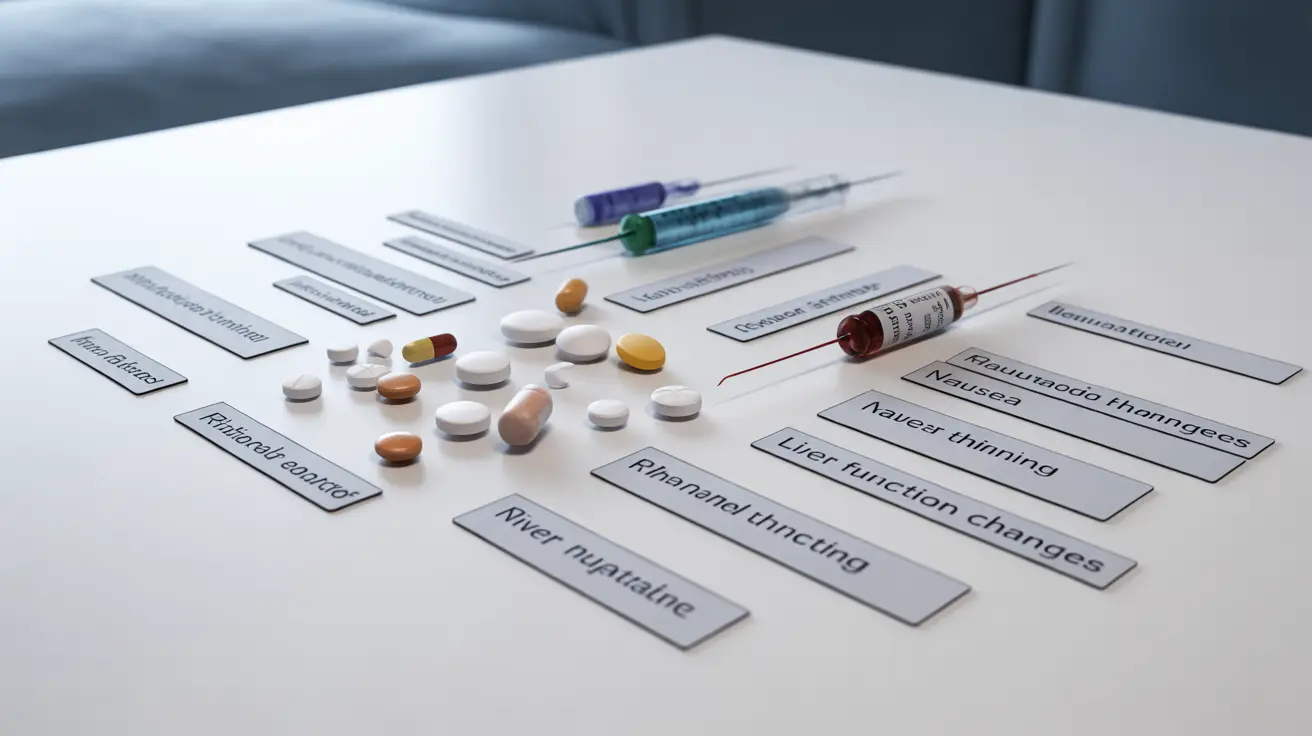Living with rheumatoid arthritis (RA) often requires a carefully managed treatment plan that includes various medications. While these medications can effectively control symptoms and slow disease progression, understanding their potential side effects is crucial for patients and caregivers. This guide explores the common side effects of RA medications and provides practical strategies for managing them effectively.
Types of Rheumatoid Arthritis Medications and Their Side Effects
Disease-Modifying Antirheumatic Drugs (DMARDs)
Traditional DMARDs are often the first-line treatment for rheumatoid arthritis. Common medications like methotrexate, sulfasalazine, and hydroxychloroquine can cause side effects including:
- Nausea and stomach upset
- Liver function changes
- Increased risk of infections
- Hair thinning
- Mouth sores
Regular blood tests and monitoring are essential when taking these medications to catch any potential issues early.
Biologic Response Modifiers
Biologic medications target specific components of the immune system and may cause different side effects such as:
- Injection site reactions
- Increased risk of serious infections
- Potential increased risk of certain cancers
- Allergic reactions
- Headaches and fever
Understanding Corticosteroid Treatment
Corticosteroids like prednisone are powerful anti-inflammatory medications often used for quick relief during flare-ups. While effective, they can cause significant side effects, particularly with long-term use:
- Weight gain and fluid retention
- Increased blood sugar levels
- Bone density loss
- Mood changes
- Increased risk of infections
- Skin thinning and bruising
Monitoring and Managing Medication Side Effects
Successful management of RA medication side effects requires a proactive approach:
- Regular check-ups with your healthcare provider
- Routine blood work and monitoring tests
- Keeping a symptom diary
- Reporting new or worsening side effects promptly
- Following medication instructions carefully
Lifestyle Modifications and Support Strategies
Several lifestyle changes can help minimize medication side effects:
- Maintaining a balanced, nutrient-rich diet
- Regular exercise as tolerated
- Adequate rest and stress management
- Staying well-hydrated
- Taking medications at optimal times
Frequently Asked Questions
What are the common side effects of rheumatoid arthritis medications? The most common side effects include gastrointestinal issues, increased infection risk, fatigue, headaches, and potential liver function changes. The specific side effects depend on the type of medication being used.
How do corticosteroids help manage rheumatoid arthritis flare-ups, and what are their potential risks? Corticosteroids rapidly reduce inflammation and pain during flare-ups. However, they can cause significant side effects including weight gain, bone loss, diabetes risk, and increased infection susceptibility, especially with long-term use.
What are the differences between biologics and traditional DMARDs in treating rheumatoid arthritis? Traditional DMARDs work broadly on the immune system, while biologics target specific immune system components. Biologics are often more targeted but may carry different risks and are typically used when traditional DMARDs aren't effective enough.
Can certain foods or supplements help reduce the side effects of rheumatoid arthritis medications? While no specific foods can completely prevent medication side effects, a balanced diet rich in nutrients can support overall health. Certain supplements like folic acid may help reduce side effects of specific medications like methotrexate, but should only be taken under medical supervision.
How can patients monitor and manage the side effects of rheumatoid arthritis medications safely at home? Patients should maintain a symptom diary, follow medication schedules strictly, get regular blood tests as recommended, stay well-hydrated, and report any new or worsening symptoms to their healthcare provider immediately.
Remember, while medication side effects can be concerning, working closely with your healthcare team and maintaining open communication about any issues you experience is crucial for successful RA management.




